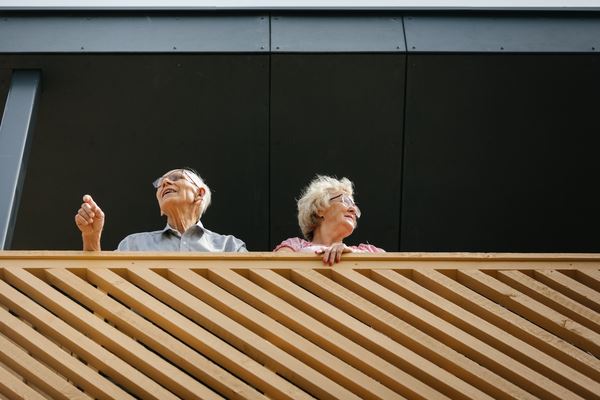Clean transition creates growth for Europe
Elderly people should take up easier living options early enough to leave enough time for pre-planning and adaptation.
“I wish I’d done it earlier.”
We often hear this comment from our customers after they have moved from a one-family house to a block of flats, close to services.
The wish is understandable because for many, in reality, the move to an urban home comes too abruptly as life situations change. That’s why many are left to regret afterwards that they didn’t take charge of their situation earlier and take up an easier living option early enough, as their own choice, leaving time for advance planning and adaptation.
The question: “Why would I leave my home?” is familiar and accurately describes the situation and emotional state beyond the point of no return, where the elderly person is no longer able to move out as their own choice, and the idea of moving feels difficult.
The fact is that most people move within the same municipality, often even within the same small area. This perfectly encapsulates the “micro location comfort zone” all of us have. I use the term to mean the area in the vicinity of home with its safe services, such as the familiar supermarket, café, library, pharmacy and health centre. As we get older, the threshold for moving to a new environment and adapting to it gets higher.
Many who have moved to an urban home have spoken about the positive effect moving close to services and public transport has on their lives, as they have swapped the upkeep of a one-family home with cultural activities and hobbies.
Nonetheless, many describe the actual decision to move as hard. They would have liked to find support in changing to a new life situation, especially if they were moving on their own. Another factor connected with moving is going through stored personal belongings, which leads them on an emotional journey through their earlier life.
All of this can be exhausting. Which adds to the exhaustion caused by the prolonged decision to move in the first place.
With our largest generations getting older, Finland is following the path seen in Japan. In many areas, the elderly will form the biggest age group in the future. Sprightlier that ever, all of our elderly people will not want to move to residential care homes, so making their home lives as comfortable and safe for as long as possible is to everyone’s advantage (e.g. HS 2.2.2020).
Urbanisation, on the other hand, is one of our strongest mega trends. As ageing residents start to lose their strength and the will to maintain their homes, many houses are left to slowly fall into disrepair, with migration simultaneously reducing the demand for and value of certain homes. Therefore, timing the move closer to services correctly has a major financial impact on many of us.
It makes sense to sell the old home while it still has more than just sentimental value. And a resident should move while adapting to new surroundings still comes naturally and they still have the daring to take on a new phase in their life.
